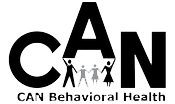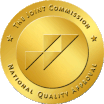The Individual
Substance abuse and/or behavioral health disorders affect people of all ages and backgrounds. Although some research has linked causes of these disorders to genetic composition, others argue environmental factors such as stress, witnessing violence, early physical or sexual trauma, and social pressures play a significant role in their development.
Possible reasons that substance abuse and behavioral health disorders tend to co-occur are due to the inclination for people to self-medicate in order to relieve stress or symptoms; an increased risk for behavioral health disorders to be brought on by drug use, especially in those with genetic or other vulnerabilities; and an overlap of risk factors for both conditions.
As these disorders begin to assume control of an individual’s life, the person may appear normal, be of above average intelligence, and be functioning and productive; but, without proper diagnosis and treatment, these disorders gradually progress and the physical health, mood, judgment, and behavior of the individual also begins to deteriorate.
The individual may feel a loss of control, values, and self-esteem, along with strained or damaged relationships with friends and family, possible loss of employment, and legal consequences.
According to Professor Elyn R. Saks of the University of Southern California School of Law, who chronicles her own struggles with mental illness, states that those who struggle with these disorders can lead full, happy, productive lives if they have the right resources (Carey, 2011). CAN Behavioral Health’s holistic approach to addiction counseling provides the client with these resources.
Possible reasons that substance abuse and behavioral health disorders tend to co-occur are due to the inclination for people to self-medicate in order to relieve stress or symptoms; an increased risk for behavioral health disorders to be brought on by drug use, especially in those with genetic or other vulnerabilities; and an overlap of risk factors for both conditions.
As these disorders begin to assume control of an individual’s life, the person may appear normal, be of above average intelligence, and be functioning and productive; but, without proper diagnosis and treatment, these disorders gradually progress and the physical health, mood, judgment, and behavior of the individual also begins to deteriorate.
The individual may feel a loss of control, values, and self-esteem, along with strained or damaged relationships with friends and family, possible loss of employment, and legal consequences.
According to Professor Elyn R. Saks of the University of Southern California School of Law, who chronicles her own struggles with mental illness, states that those who struggle with these disorders can lead full, happy, productive lives if they have the right resources (Carey, 2011). CAN Behavioral Health’s holistic approach to addiction counseling provides the client with these resources.
The Employer
According to the results from the 2012 National Survey on Drug Use and Health: National Findings (2013), approximately 20.7 million adults are classified as having some type of substance use disorder. Of these adults, approximately 10.7 million (51.9 percent) were employed full time.
Further, an estimated 43.7 million adults aged 18 or older in the United States had some form of mental illness in the past year. Furthermore, among the 20.7 million adults with a past year substance use disorder, 40.7 percent (8.4 million adults) had co-occurring mental illness in 2012.
The American Journal of Psychiatry conservatively estimates that mental illness costs America $193.2 billion in lost earnings per year. These costs include, but are not limited to, expenditures for health care, workplace injuries, disability payments, and productivity losses. It is therefore important that employers are aware of the prevalence of behavioral health disorders and the continued effect of substance abuse among working adults, and the related costs.
CAN Behavioral Health helps employers improve productivity, reduce workplace injuries, and decrease overall health care costs by using Best Practices and treating the specific needs of an individual, family, and employee through counseling and education,. The expected outcome is increased overall workplace moral.
Further, an estimated 43.7 million adults aged 18 or older in the United States had some form of mental illness in the past year. Furthermore, among the 20.7 million adults with a past year substance use disorder, 40.7 percent (8.4 million adults) had co-occurring mental illness in 2012.
The American Journal of Psychiatry conservatively estimates that mental illness costs America $193.2 billion in lost earnings per year. These costs include, but are not limited to, expenditures for health care, workplace injuries, disability payments, and productivity losses. It is therefore important that employers are aware of the prevalence of behavioral health disorders and the continued effect of substance abuse among working adults, and the related costs.
CAN Behavioral Health helps employers improve productivity, reduce workplace injuries, and decrease overall health care costs by using Best Practices and treating the specific needs of an individual, family, and employee through counseling and education,. The expected outcome is increased overall workplace moral.
The Family Unit
The National Alliance on Mental Illness (NAMI) defines mental illness as a medical condition that disrupts a person's thinking, feeling, mood, ability to relate to others and daily functioning (2013).
Furthermore, the National Council on Alcohol and Drug Dependence (NCADD) asserts that “addiction is a family disease that stresses the family to the breaking point, impacts the stability of the home, the family's unity, mental health, physical health, finances, and overall family dynamics” (2013).
Family members may become distant, angry, resentful, frustrated, and hopeless. They may believe that they cannot address the issue without angering the individual or exacerbating their loved one’s disorder. Often, well-meaning family members become trapped in a cycle of enabling and codependency- supported by Systems Theory.
When families are involved in the treatment process they can become knowledgeable of the disorder(s), gain new awareness of their loved one’s condition, and become more mindful of their own thoughts and actions. Together, the family unit can learn to recognize negative behavior patterns, healthy boundaries, proper support of their loved one, and to care for themselves during this trying and stressful time.
Furthermore, the National Council on Alcohol and Drug Dependence (NCADD) asserts that “addiction is a family disease that stresses the family to the breaking point, impacts the stability of the home, the family's unity, mental health, physical health, finances, and overall family dynamics” (2013).
Family members may become distant, angry, resentful, frustrated, and hopeless. They may believe that they cannot address the issue without angering the individual or exacerbating their loved one’s disorder. Often, well-meaning family members become trapped in a cycle of enabling and codependency- supported by Systems Theory.
When families are involved in the treatment process they can become knowledgeable of the disorder(s), gain new awareness of their loved one’s condition, and become more mindful of their own thoughts and actions. Together, the family unit can learn to recognize negative behavior patterns, healthy boundaries, proper support of their loved one, and to care for themselves during this trying and stressful time.
|
401 W Texas Ave, Baytown, TX 77520
Phone: 281- 427- 4226 | Fax: 281-839 -7848 Email: [email protected] |
© 2023 CAN Behavioral Health. All rights reserved.
If this is a life-threatening emergency, please dial 911 or the National Suicide Prevention Lifeline at 800-273-8255.



